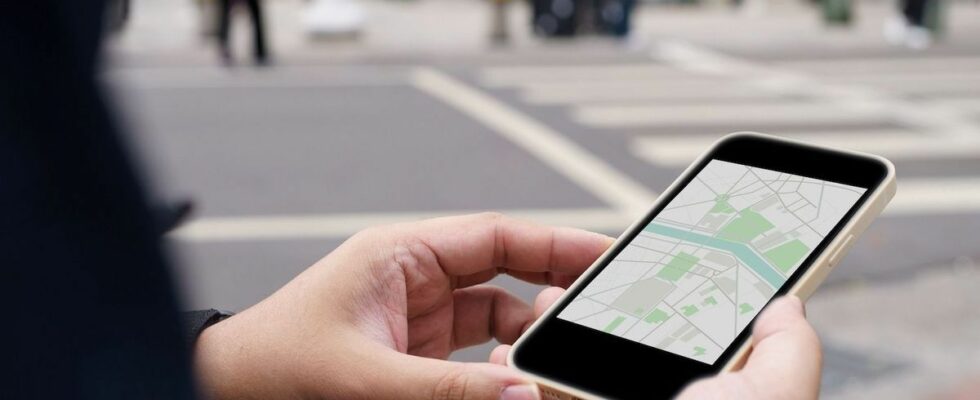Published on
updated on
Reading 3 min.
in collaboration with
Amélie Boukhobza (Clinical psychologist)
While more and more parents are taking the plunge by activating the geolocation function on their teenager’s phone, this practice raises questions. Useful invention or digital drift? Here is our answer.
For several years, a growing number of parents have turned to “tracking applications”, these famous 2.0 tools which allow them to locate their child(ren) in real time. A false freedom for the youngest, forced to digitally “reassure” their loved ones? We asked Amélie Boukhobza, clinical psychologist, the question.
Sacrificing your teen’s privacy in the name of safety
For many families, installing the “geolocation” function on their teenager’s phone has become normal, even automatic. So much so, in fact, that the number of location applications on the Apple store is exploding (mSpy, EyeZy, Google FindMyDevice, etc.) along with those focused on the geographic tracking of young people within the family circle (Find My Kids, Google Family Link…).
“When I started going out around the age of 12, my parents installed parental controls with geolocation. For me it’s normal, it reassures them and overall it doesn’t pose a problem for me, since they let me go out“, reveals Thibaut, a 15-year-old high school student, in the columns of the media DNA.
A 2.0 surveillance which seems to operate in a very natural way: the use of geolocation does not appear as an excess of curiosity, nor even as a desire to invade the private life of one’s child – it is rather a question here of “protect” the other from possible danger.
“The question of the geolocation of teenagers by their parents has become, for many, a triviality. What was supposed to be a security tool has gradually transformed into an instrument of constant control, a kind of insidious surveillance which ends up normalizing parental “policing”. confirms Amélie Boukhobza.
But where is the limit? When does this vigilance become unhealthy? According to our expert psychologist, discomfort appears as soon as this functionality is activated.
“In reality, it is not just a question of technology, but a question of trust. Geolocating your child means admitting, often unconsciously, that you do not trust him. And that That’s the problem.” she emphasizes.
“Thus, rather than helping teenagers to develop themselves as autonomous and responsible individuals, this perpetual surveillance locks them into a logic of complete control. How can we teach them to trust each other if their every move is being tracked? Confidence can be cultivated. If we never give them the space to take (reasonable) risks and make mistakes, we short-circuit their ability to build themselves. Their self-confidence is directly impacted, because a child who is watched is a child who ultimately can doubt himself.“, warns the expert.
Geolocate to reassure or to dominate?
Between the need for reassurance and the lack of ethical consideration, there is reason to wonder. The border is thin, and we often cross this limit without even realizing it, warns Amélie Boukhobza.
“Certainly, today’s society is more complex and probably more dangerous. Parents may feel this need to know where their child is, especially when they are late or when something unexpected arises. Fear, understandable, is meant to be protective. But the answer to this anxiety may not lie in constant surveillance, in absolute control and the desire for complete mastery.“, assures the practitioner.
The expert instead invites parents to make “a pact” with their child.
“Rather than controlling everything, we could agree on a simple arrangement: send each other a message when they arrive at their destination, notify them in the event of delay, etc. This establishes an exchange of trust, mutual respect, without requiring total control and which must be respected! Under penalty of making something tighter in fact…!”, she concludes.

